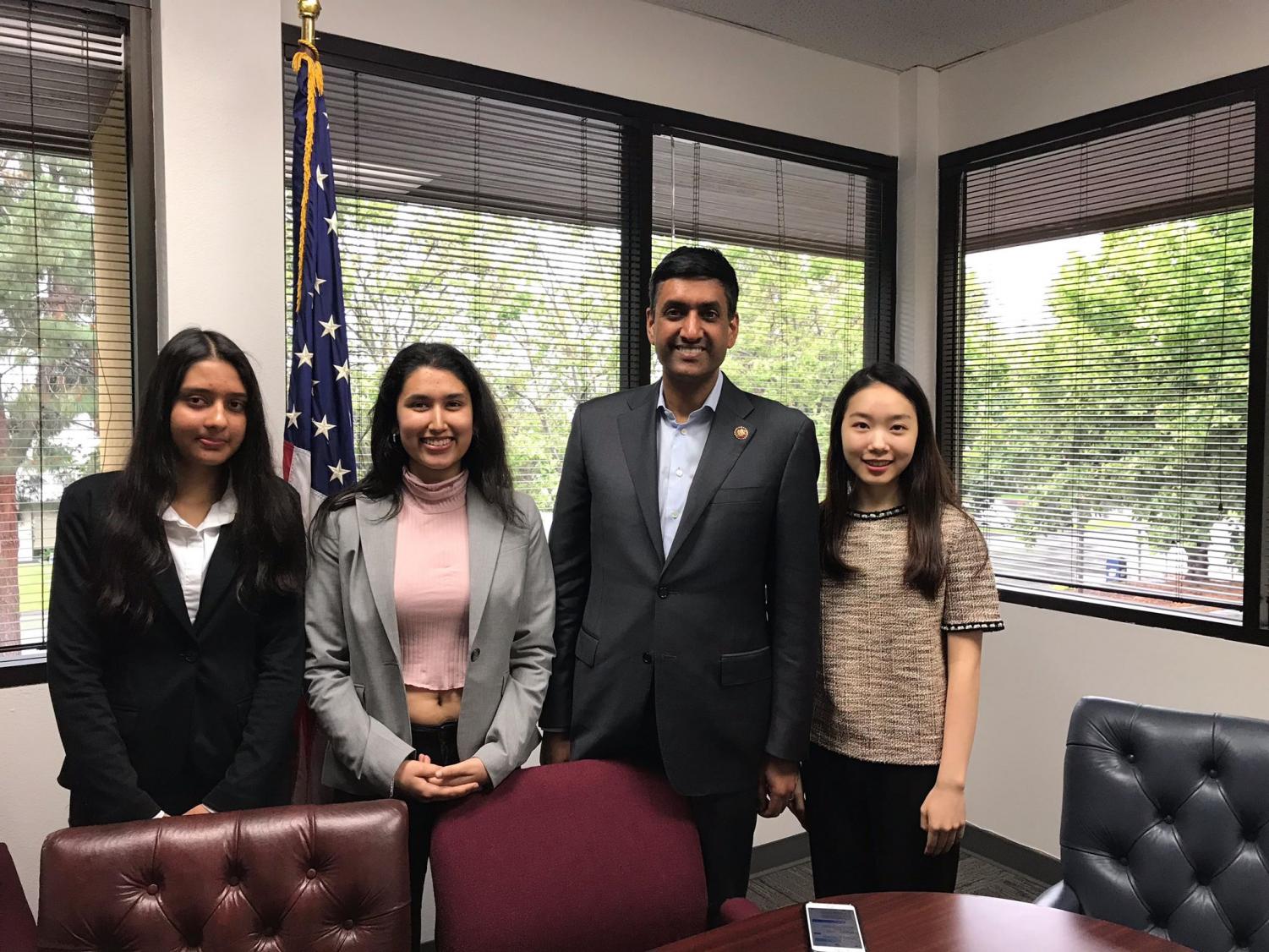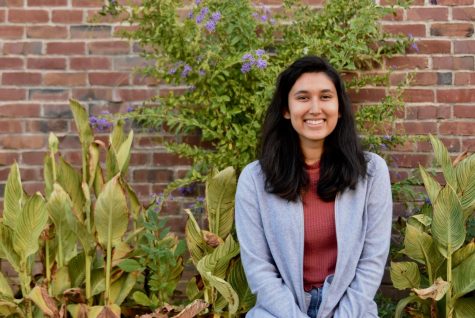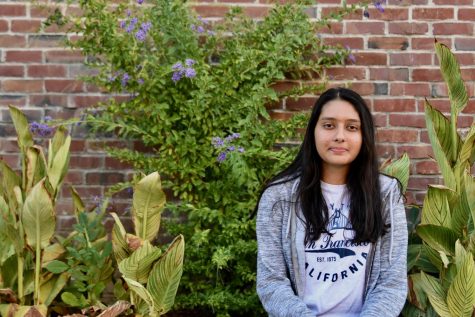Congressman Ro Khanna discusses his policies
May 23, 2019
American democracy is characterized by vigilance — by common citizens staying politically educated and active. It is our social and political responsibility to know who and what our politicians stand for.
Congressman Ro Khanna, a member of the U.S. House of Representatives, currently represents California’s 17th Congressional District, which includes Cupertino, Santa Clara and San Jose. On May 18, he hosted an event with student journalists across the Bay Area to discuss pertinent issues concerning the community. The following brief gives an overview of his views on those very issues.
Climate Change
A supporter of the New Green Deal, Khanna considers it his responsibility to enact legislation and reforms that directly tackle environmental issues. These pieces of legislation include both mitigation and adaptation strategies, such as carbon tax and investments in renewable energy sources.
“I think we’ve got a big bold action on climate change,” Khanna said. “[We need] to make sure that we are really making the investment that’s necessary in the solar and wind and renewable energy that we have a carbon tax that we are investing in energy efficiency and have high standards.”
Affordable Housing
Khanna believes that the housing crisis in the Bay Area is a large issue that needs to be addressed. As the hub of many notable tech companies like Apple and Google, the Bay Area has attracted thousands of new residents every year. However, there is not enough housing for all of these employees. He believes a large part of the issue is the fact that older citizens aren’t selling property and downsizing, meaning the supply of houses isn’t adequate with respect to the high demand.
“We need more affordable housing,” Khanna said. “And by that, I don’t just mean this for people who are homeless, but for teachers and nurses and machinists and people who are doing everyday jobs. I mean, they can’t afford to live in many of these communities. So we need to have more housing and rent-controlled apartments that are accessible to people in the middle income.”
High-Speed Transit
Khanna explains that the lack of affordable housing has also led to another major issue: commute. While some public transport systems like the Santa Clara Valley Transportation Authority exist, they have not been optimized to meet the needs of residents. He believes that investing in a more accessible and efficient public transit system would be beneficial.
“We need [Bay Area Rapid Transit] extended across the Bay, the full loop, and I’m supportive of that,” Khanna said. “I think we need high-speed rail, I mean, from San Francisco to LA and then within even the Bay Area. China has 18,000 miles of high-speed rail, we have 500. So we’ve got to really invest in that kind of infrastructure in this country.”

Humanities Funding
Khanna believes the Silicon Valley is very focused and centered around Science, Technology, Engineering and Mathematics (STEM), as STEM careers are perceived to yield a higher income. He supports expanding and promoting the humanities to bring a balance to the Bay Area.
“We need more philosophers and thinkers,” Khanna said. “I think there’s never been a higher role and need for the humanities and I certainly support it. I support arts education. Yes, STEM is important. Obviously, STEM education is critical to America’s economic future. But so is arts and liberal arts education, and you need a balance of both.”
Equality in Politics
Khanna explains that a key step toward gender equality is having legislative bodies and the government model the actual population — which is approximately half female. He believes having more females in office is a huge milestone in terms of feminism.
“We need that diversity in gender and race and in sexual orientation,” Khanna said. “The good news is that the last Congress with the 2018 class had the most women of any freshman class. And a lot of very, very, very charismatic, talented women, people like Alexandra Rashida. I anticipate many more women are going to be running and many more women are going to be winning.”
College Tuitions
Khanna believes that currently, both in the Bay Area and America, college education is not always accessible. According to statistics from the Federal Reserve, there are 44.7 million student loan borrowers, resulting in a total student loan debt of $1.56 trillion. He believes cutting down on current military expenditures will result in cheaper, or even free college educations at public universities.
“I think we need free college tuition,” Khanna said. “And we can do that for the amount that we spend in two years in Afghanistan, we can make every public college free. It used to cost $600 to go to Berkeley for a year in the early 1970s. We’ve got to return to that model. I mean, high school education is free. Public college should be seen that way. That’s one of the big challenges and I’m on a bill to make public college first.”
Immigration
Khanna believes that setting immigration bans and quotas isn’t the correct way to regulate immigration. As a native of the Bay Area, known for its large immigrant population, Khanna supports an immigration system in which immigrants with specific skills sets are chosen to immigrate, in order to further improve and enhance the country.
“I think we need comprehensive immigration reform, which is a path to citizenship for dreamers, for those who are undocumented,” Khanna said. “[We need] a rational immigration policy that allows family reunification [and] family visas and also encourages people who have particular interests or skills to come here.”
SAT’s Adversity Score and Affirmative Action
Khanna supports affirmative action, as he believes that a college education should be accessible in manners beyond tuition. However, he believes there should a limit to the extent to which diversity is factored into college decisions.
“So I’m for affirmative action,” Khanna said. “But I think it has to be done thoughtfully in ways that improve diversity, but I’m not sure where the [adversity score] is at. I’m going to have to look more into that. That seems a bit much.”





























